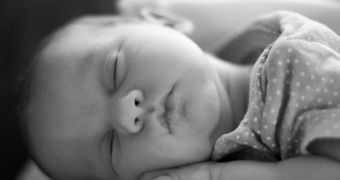A new scientific paper proposes a new idea related to sleep health. Researchers behind it write that older adults may experience a decreased need for sleep as they further age, provided that they are otherwise healthy. The investigation has determined that adults tend to need significantly less sleep during average days than younger people do. Details of the research are published in the February 1 issue of the respected scientific journal SLEEP, e! Science News reports.
The paper also reveals that adults experience a diminished level of sleepiness during the daytime as well, if they get sufficient rest regularly. Scientists at the University of Surrey, in the United Kingdom, determined that seniors slept on average about 20 minutes less than adults. At the same time, adults slept about 23 minutes less than young people. All the data was related to a normal sleep period, of eight hours per night. It was also determined that, as people aged, the amount of time they spent in deep, slow-wave sleep decreased constantly.
What amazed the research team was the fact that although adults experienced a decrease in sleep time, intensity and continuity, they were still less likely than young individuals to complain of daytime sleepiness. “Our findings reaffirm the theory that it is not normal for older people to be sleepy during the daytime. Whether you are young or old, if you are sleepy during the day you either don't get enough sleep or you may suffer from a sleep disorder,” Surrey expert and Professor of Sleep and Physiology Derk-Jan Dijk, PhD, says. He has also been the principal investigator for this research.
The investigation was conducted on 110 adults, aged 20 to 83. The participants were divided into three age groups – young (20-30 years old), middle-aged (40 to 55 years old), and seniors (66 to 83). All people had their sleep habits surveyed using polysomnography, and the results were assessed employing two methods, the Multiple Sleep Latency Test (MSLT), and the Karolinska Sleepiness Scale. The researchers say that more studies are needed in this issue, because they did not assess sleepiness during the evening time, when it was possible that older people were more likely to be sleepy than younger adults.

 14 DAY TRIAL //
14 DAY TRIAL //